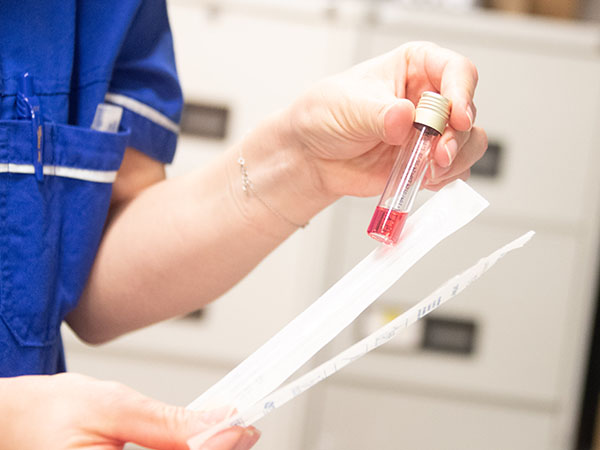Cyprus announced three coronavirus deaths on Monday, with a small rise in new COVID-19 cases to 120, as lockdown measures started easing and more people gradually return to work in an effort to restart the economy.
The health ministry said that a 62 year old woman and two men, aged 70 and 80, all with underlying health issues, raised the death toll since the pandemic started to 202.
December and January had 76 deaths each, the worst months to date, of which 136 were men (67%) and 66 women, for an average age of 79 years.
The number of patients admitted in state hospitals was 129, of whom 43 are critical, down from 140 and 50, respectively, on Sunday.
Monday also saw the second highest number of tests of the general public, as well as those returning to work after the January 10 lockdown, while 80,000 more are expected back next Monday, including teachers, as most students will be back in class.
The health ministry said that 27,248 PCR and antigen rapid tests were conducted, from Sunday’s 28,364, with 120 new cases of SARS-CoV-2 diagnosed. Sunday had 106 new cases, below Friday’s 119 and Saturday’s 113.
This raised the total of all infections since last March to 30,996.
Only 1,854 tests employed the PCR molecular method, while 25,394 were antigen rapid tests, as part of the national testing programme that will continue from Tuesday to Sunday in alphabetical order.
Of the new cases, 31 were diagnosed from tracing contacts of earlier infections, three were among the 795 passengers arriving at Larnaca and Paphos airports, while 75 were identified from rapid tests.
The biggest number of tests were carried out in Nicosia with 9,177, followed by Limassol (6,178), Larnaca (3,854), Paphos (2,221) and Famagusta (1,305).
Once again, Limassol had the most positive test result with 32, followed by Larnaca (17), Nicosia (12), Famagusta (7) and Paphos (5).
Only two positive cases were diagnosed among 580 tests in old people’s homes.
Mass testing in alphabetical order
Hairdressers, barbers and nail salons reopened on Monday, with the number of workers allowed back in the private sector rising from 25% imposed on January 10 to 50%. However, at least 20% of the employees at any workplace must carry a negative rapid test.
The health ministry added that as of Tuesday, February 2, all those returning to work on February 8 must have secured a negative rapid test in advance.
These include retail shop employees, teachers at elementary schools and graduating classes of the lyceums and technical schools, as well as staff at museums and archaeological sites. In all, 80,000 people are expected to have returned to work as of February 8.
To ensure a smooth testing programme, the health ministry has introduced an alphabetical registration system, as follows:
Tuesday, February 2: Α – Γ (Greek), A – D (English);
Wednesday, February 3: Δ – Ι (Greek), E – I (English);
Thursday, February 4: Κ – Λ (Greek), J – M (English);
Friday, February 5: Μ – Ο (Greek), N – R (English);
Saturday, February 6: Π – Σ (Greek), S – V (English);
Sunday, February 7: Τ – Ω (Greek), W – Z (English).
In all, 53 testing centres will be operational, most of them working from 8.30am to 6pm.










